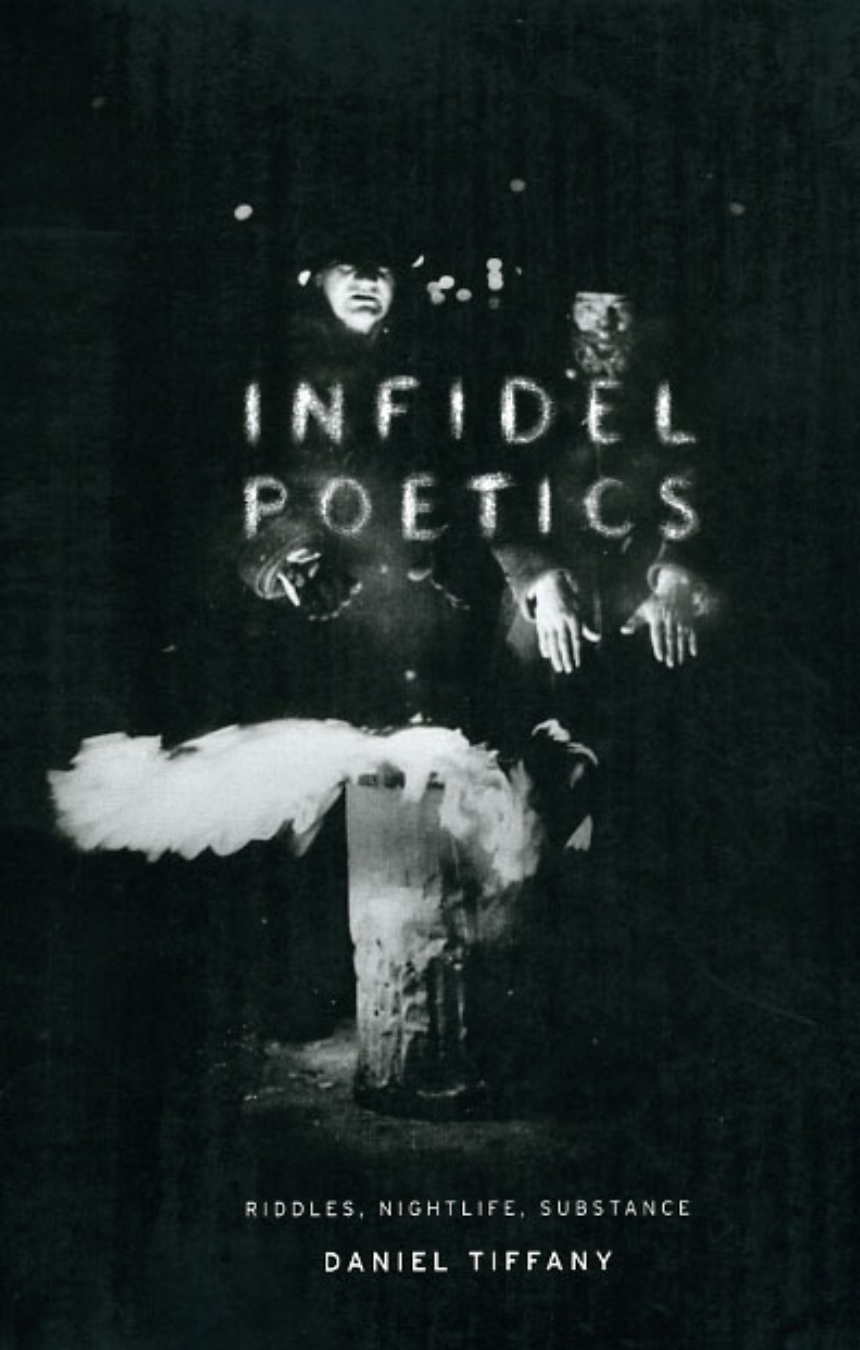Infidel Poetics
Riddles, Nightlife, Substance
Poetry has long been regarded as the least accessible of literary genres. But how much does the obscurity that confounds readers of a poem differ from, say, the slang that seduces listeners of hip-hop? Infidel Poetics examines not only the shared incomprensibilities of poetry and slang, but poetry’s genetic relation to the spectacle of underground culture.
Charting connections between vernacular poetry, lyric obscurity, and types of social relations—networks of darkened streets in preindustrial cities, the historical underworld of taverns and clubs, the subcultures of the avant-garde—Daniel Tiffany shows that obscurity in poetry has functioned for hundreds of years as a medium of alternative societies. For example, he discovers in the submerged tradition of canting poetry and its eccentric genres—thieves’ carols, drinking songs, beggars’ chants—a genealogy of modern nightlife, but also a visible underworld of social and verbal substance, a demimonde for sale.
Ranging from Anglo-Saxon riddles to Emily Dickinson, from the icy logos of Parmenides to the monadology of Leibniz, from Mother Goose to Mallarmé, Infidel Poetics offers an exhilarating account of the subversive power of obscurity in word, substance, and deed.
264 pages | 6 x 9 | © 2009
Literature and Literary Criticism: American and Canadian Literature, British and Irish Literature
Reviews
Table of Contents
Introduction: Lyric Substance and Social Being
1 The Spectacle of Obscurity
In the Vernacular
Anon
Kryptonite
Def Rhapsody
Thick as Thieves
The Riddle of Being
2 Riddlecraft
In the Parlance of Things
Black Wonder
Orpheus and the Backwardness of Things
Darkness Visible
The Metaphysics of Dust
Counterfeit Gloom
3 Lost Laboratories of the Sphinx
Enigmatography
Rhapsodic Measures
Hex
Ransom in a Voice
Elegiac Questions
Fetters, Jinx, Logic
Blow-Up
4 Lyric Monadologies
Genetic Obscurity
Ariadne’s Thread
The Infinity of Small, Hidden Springs
Lucifer’s Element, or the Secrets of the Sublime
Logic, Expression, Harmony
Clockwork of the Infidel
Infinity, Inc.
Sleeper Cells and Slumbering Monads
5 Infidel Lyric: The Rhymes of the Canting Crew
Flash, etc.
Strange Navigation
Sparrow Language
The Spy’s Lexicon
Ragpicker, Dandy, Apache
6 Flash Crib: A Genealogy of Modern Nightlife
The Infidel Sublime
Tavern Talk
The Brands of Cupid
The Politics of Nightlife
Infidel Culture
Shoemaker-Poets
Fairies and Infidels
Noctambulism
The Nightspot and the New Chanson
Tingeltangel
Smash Palace
Shades of the Avant-Garde
7 Mother Goose and Mallarmé
Afterword: The Art of Disappearing
Notes Index